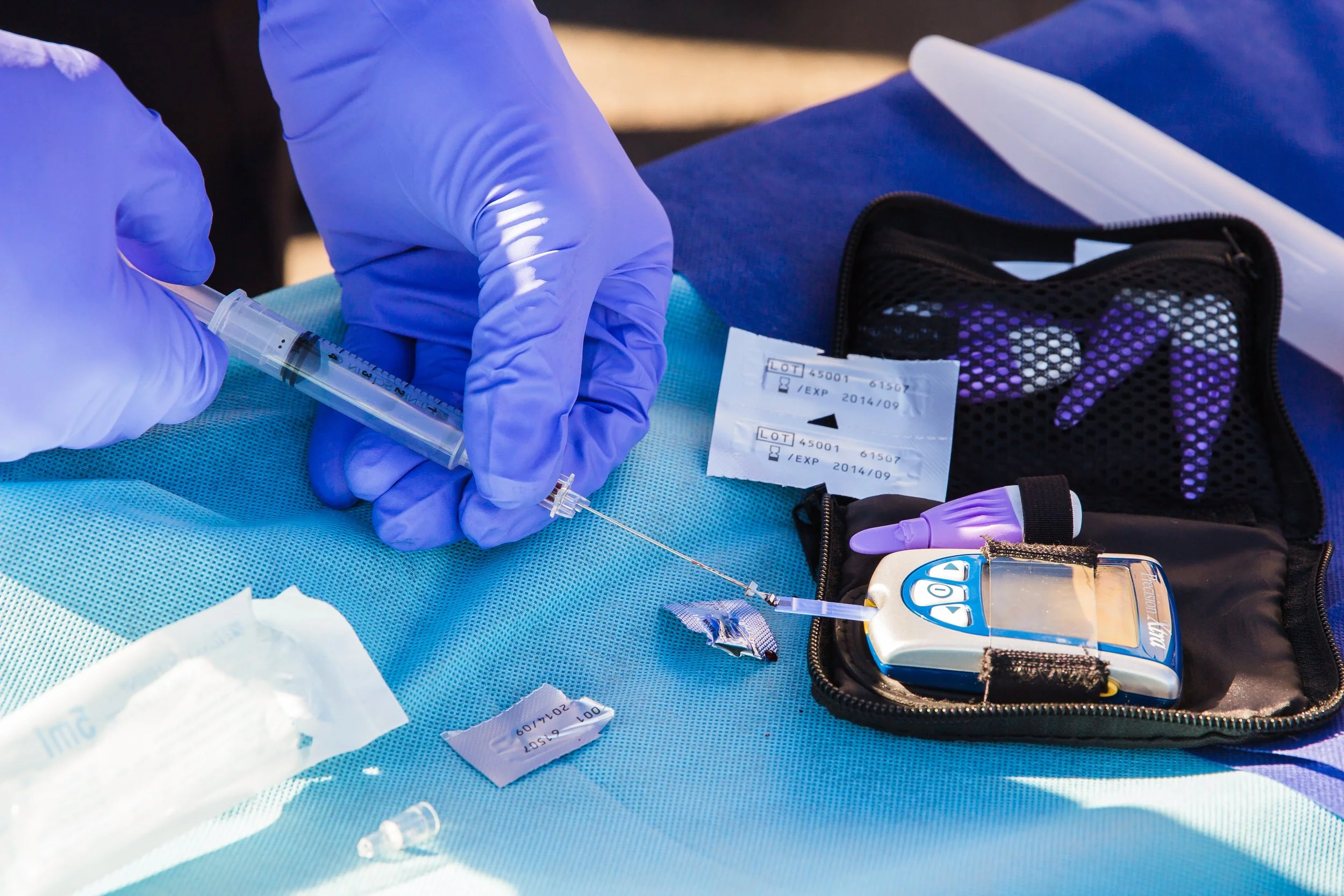Diabetes in pets - what you need to know
Living with a pet who has diabetes can be challenging for pet owners. For the most part, pets who have been diagnosed with this illness will require regular veterinary care and daily management. While diabetes might seem scary and complicated to manage, the truth is that with the right treatment and care regimen, many pets with diabetes can lead happy, healthy lives.
Understanding diabetes in pets
Just like humans, dogs and cats can develop diabetes. Diabetes in pets is a chronic condition that affects the body's ability to produce or use insulin effectively. Insulin is a hormone that helps regulate blood sugar levels in the body. When an animal has diabetes, their body struggles to maintain proper blood sugar levels, which can cause various health issues.
Diabetes is a relatively common condition in pets, particularly in middle-aged and senior dogs and cats. According to the American Veterinary Medical Association, approximately 1 in every 300 dogs and 1 in every 230 cats will develop diabetes in their lifetime. Understanding the causes, symptoms, and treatment options for diabetes can help pet owners better manage their pet's health.
Types of pet diabetes
The two primary types of diabetes in pets are Type 1 and Type 2 diabetes. In Type 1 diabetes, pets cannot produce insulin, so daily insulin injections are required. This type of diabetes is more commonly seen in dogs than cats. In Type 2 diabetes, pets can still produce insulin, but their body does not use it effectively, so daily injections may still be required. This is the most common form of diabetes in cats and can sometimes be reversible if the disease goes into remission
What are the symptoms of diabetes in pets?
Diabetes in pets, like in humans, can cause various symptoms. Here are some common symptoms to look out for:
Increased thirst and urination: Pets with diabetes may drink more water than usual and have to urinate more frequently.
Increased appetite: Some pets with diabetes may have an increased appetite despite losing weight.
Weight loss: Despite eating more, pets with diabetes may lose weight.
Lethargy: Pets with diabetes may become less active and always seem tired.
Vomiting: Some pets with diabetes may vomit occasionally.
Poor coat condition: Diabetes can affect the quality of a pet's coat, making it dull and thin.
If you notice any of these symptoms in your pet, it's important to take them to a veterinarian for an evaluation. Early diagnosis and treatment can help manage the condition and prevent further complications.
What are the causes of diabetes in pets?
The exact causes of diabetes in pets are not always clear, but several factors may increase a pet’s risk of developing this condition.
Genetics can play a role in the development of diabetes, particularly in certain breeds of dogs such as the Samoyed, Australian Terrier, and Miniature Schnauzer. Obesity is another major risk factor for diabetes in pets, as excess weight can make it more difficult for the body to use insulin effectively.
Other factors that may increase a pet's risk of developing diabetes include age, certain medications such as corticosteroids, and other health conditions such as pancreatitis. There is also a sex predisposition, with male cats being more prone and female dogs more prone than their opposite sex.
The symptoms of diabetes in pets
The symptoms of diabetes in pets can be similar to those in humans. Some of the most common signs of diabetes include increased thirst and urination, increased hunger, weight loss, and lethargy. Pets with diabetes may also develop other health issues, such as urinary tract infections and cataracts.
If left untreated, diabetes can lead to more serious health complications such as ketoacidosis, a potentially life-threatening condition that occurs when the body starts breaking down fat for energy instead of glucose.
It is important for pet owners to be aware of the signs of diabetes and to seek veterinary care if they suspect their pet may be affected. Early diagnosis and treatment can help to manage the condition and improve the pet's quality of life.
Diagnosing diabetes in pets
Diabetes is a common condition that affects pets, just like humans. It is a chronic disease that occurs when the pancreas does not produce enough insulin, or the body cannot use the insulin that is produced. This results in high blood glucose levels, which can cause various health problems. If you suspect that your pet may have diabetes, it’s important to seek veterinary care as soon as possible.
Diagnosis of diabetes involves a combination of blood and urine tests and a clinical exam by a veterinarian. During the clinical exam, the veterinarian will ask you questions about your pet’s symptoms, medical history, and diet. They will also perform a physical exam to check for any signs of diabetes, such as increased thirst, frequent urination, and weight loss.
Veterinary tests and examinations for diagnosing diabetes
To diagnose diabetes, veterinarians will typically perform a physical exam and a general blood test. The blood test will help determine if there is any underlying condition causing the symptoms.
Urine tests can also be done to measure glucose levels and check for ketones, which can indicate diabetes. The veterinarian may also perform a fructosamine test, which measures the average blood glucose level over the past two to three weeks.
How can I treat and manage diabetes in my pet?
Treating and managing diabetes in pets is a crucial aspect of pet care. Diabetes is a metabolic disorder that affects how the body processes glucose, leading to high blood sugar levels. It is a chronic condition that requires lifelong management.
Various factors, including genetics, obesity, and age, can cause diabetes in pets. Some of the most common symptoms of diabetes in pets include increased thirst and urination, weight loss, and lethargy. If you suspect your pet has diabetes, it is essential to consult with your veterinarian immediately.
Once your pet has been diagnosed with diabetes, the treatment and management plan will depend on the severity of the condition, the type of diabetes, and the pet’s overall health.
Insulin therapy
Insulin therapy is a foundational treatment for pets diagnosed with diabetes. This involves daily injections to help regulate the pet's blood sugar levels. Owners can work with their veterinarians to determine the right dose and frequency of injections. The use of insulin in pets can be challenging, but with the right technique, it can become much easier to manage.
It is essential to note that insulin therapy is not a cure for diabetes but rather a way to manage the condition. Owners must administer insulin injections at the same time each day to ensure consistency. Failure to do so can result in uncontrolled blood sugar levels, which can cause severe health complications.
Dietary adjustments for diabetic pets
Dietary adjustments can help manage diabetes by regulating blood sugar levels. Switching to a high-fibre diet or diabetes-specific diet is standard in managing diabetes. Pets with diabetes may also require smaller and more frequent meals, which better regulate blood sugar levels. Owners can work with their veterinarians to develop an appropriate pet diet plan.
It is crucial to monitor your pet's food intake and ensure they do not consume any foods that can spike their blood sugar levels. Avoid giving your pet table scraps or high-carbohydrate foods. Stick to a consistent feeding schedule to ensure your pet's blood sugar levels remain stable.
Exercise and weight management
Exercise and weight management are both essential in managing diabetes in pets. Maintaining a healthy body weight can significantly reduce blood sugar levels, while exercise helps to maintain proper insulin sensitivity. Owners can consult with their veterinarian to develop a safe exercise routine for their pets.
Pets with diabetes may require adjustments to their exercise routine, especially if their blood sugar levels are poorly controlled. Owners should monitor their pet's behaviour and energy levels during exercise to ensure they do not become fatigued or experience any other health complications.
Let Doncaster Vet Hospital help your diabetic pet
Diabetes is a manageable condition in pets. While it can be challenging, with the right treatment, diet plan, and monitoring In place, pets can lead happy, healthy lives. If your pet has been diagnosed with diabetes or you suspect they might have it, get in touch.




